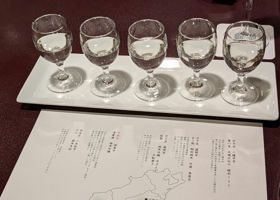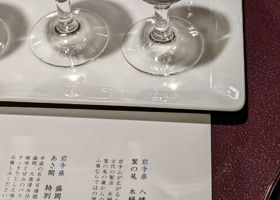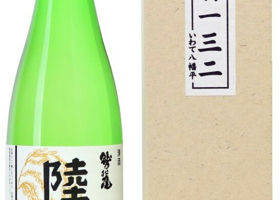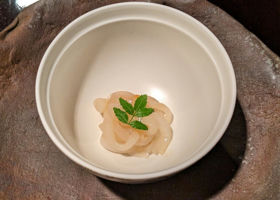



熊谷 朋之
Good evening! (^○^)
How are you doing on this weekday in the GW valley?
If you work hard today and tomorrow, you will have another vacation.
And it is a long vacation.
This year, my eldest son and his wife and my grandchildren will be here, so I am looking forward to drinking with them (laughs).
(lol) As expected, my grandchildren can't drink alcohol, though. (^_^;)
Well, today we had a set of drinks to compare at a Japanese restaurant in Metropolitan Morioka New Wing.
The first is Rikuu 132 from Washinoo, which I drank before.
Explanation about the rice from Washio
・・・・・
Rikuwa 132" is a variety bred at the Rikuwa Branch of the National Agricultural Experiment Station for the first time in Japan by artificial crossbreeding between "Rikuwa 20" (a strain isolated from Aikoku), which is resistant to cold damage, and "Kame-no-o," which is said to have good eating quality.
I think it can be said that this variety marked a turning point in Japanese breeding technology.
Rikuu No. 132 became the parent variety of Norin No. 1, which led to Koshihikari, Sasanishiki, and Hitomebore, all of which are well-known paddy rice varieties in the Tohoku region.
・・・・・
Although it says it is brewed in wooden vats, the aroma of the vats is almost non-existent.
If anything, it is the sweet aroma of rice.
It tastes slightly sweet.
It was delicious!
Japanese>English